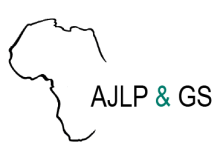Resource information
In August 2017, Botswana’s parliament passed the Tribal Land Bill, which became the Tribal Land Act no. 1 of 2018. It shall come into operation once the minister sanctions. Until then, the 1994 Act shall be operational. The new Act is aimed at addressing the challenges that cannot be effectively addressed by the operational Act. Some hail it as progressive, but this article argues that the Act has some limitations. Its insistence on the registration of customary grants with the Registrar of Deeds may lead to unintended consequences, such as family conflicts. The Act also aims to strictly regulate the acquisition of tribal land by non-citizens, but this will not address the rising accumulation of land by the local elite through the market. Oddly, the Act and the 2015 land policy contradict each other. Commendably, the Act shall introduce an association of land boards to assist in tackling land problems.


